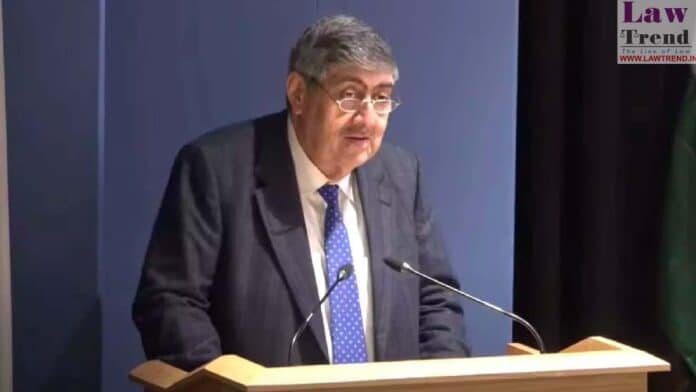Supreme Court judge Sanjay Kishan Kaul on Sunday stressed that the Constitution is ever-evolving and capable of adapting to the hopes and aspirations of the people with changing times.
While the exercise of breathing life into the Constitution has largely been seen as a judicial project, Justice Kaul said, the conversations about constitutional values in the future should not be limited to the litigation before courts but should be infused in all spheres.
He noted that one of the first instances where the apex court had expounded on the meaning of the living Constitution was in the landmark judgement in the Kesavananda Bharati case, which had laid down the path-breaking concept of the ‘Basic Structure’ of the Constitution.

“From the idea of the Constitution being flexible, the living Constitution has metamorphosed as to how we understand it today, which is that the Constitution is ever evolving.
“It is capable of adapting to the hopes and aspirations of the public with changing times,” he said in his welcome address at the inauguration of the Constitution Day celebrations organised by the apex court .
Justice Kaul said as the country enters the 75th year of the adoption of the Constitution, it is important “to remind ourselves of our potential”.
“Having given ourselves this Constitution, we must empower all parts of society to nurture its values by raising constitutional consciousness,” Justice Kaul said.
President Droupadi Murmu delivered the inaugural address at the programme, which was also attended by Chief Justice of India D Y Chandrachud, apex court judge Justice Sanjiv Khanna, Law Minister Arjun Ram Meghwal and others.
In his address, Justice Kaul said that living constitutionalism was best seen in the interpretation of the fundamental right to life under Article 21 of the Constitution.
Article 21 of the Constitution deals with the protection of life and personal liberty.
“Over the years, the fundamental right to life has evolved to encompass the right to live with dignity, right to fair trial, access to justice, the right to adequate nutrition, right to education and several other socio-economic rights,” he said.
He referred to the landmark judgements of the apex court, including on recognising the right to privacy as a fundamental right and the verdict concerning section 377 of the Indian Penal Code which had held that consensual sex among adult homosexuals or heterosexuals in private space was not a crime.
He said over the years, the exercise of breathing life into the Constitution has largely been seen as a judicial project, in particular of the higher judiciary.
“My hope for the future is that the conversations about the constitutional values are not limited to the litigation before our courts but is infused in all spheres including the private sphere,” Justice Kaul said.
Also Read
“This dialogue when extended beyond public forums and institutions will ensure that we as a society are conscious of and internalise these values, making the Constitution truly come alive,” he said.
Justice Kaul said one way in which awareness of constitutional values was being built was through the translation and distribution of the preamble in vernacular languages.
He said efforts to make the Supreme Court physically and virtually accessible to people with disabilities was a step towards equipping our spaces to reflect the values of equality and non-discrimination.
“This must be emulated across the country in India,” he said, adding, “Earlier this year, we introduced live telecast of constitutional bench hearings and circulation of transcriptions which has made constitutional debates accessible and intelligible to the people, particularly to the students of schools and colleges.”







